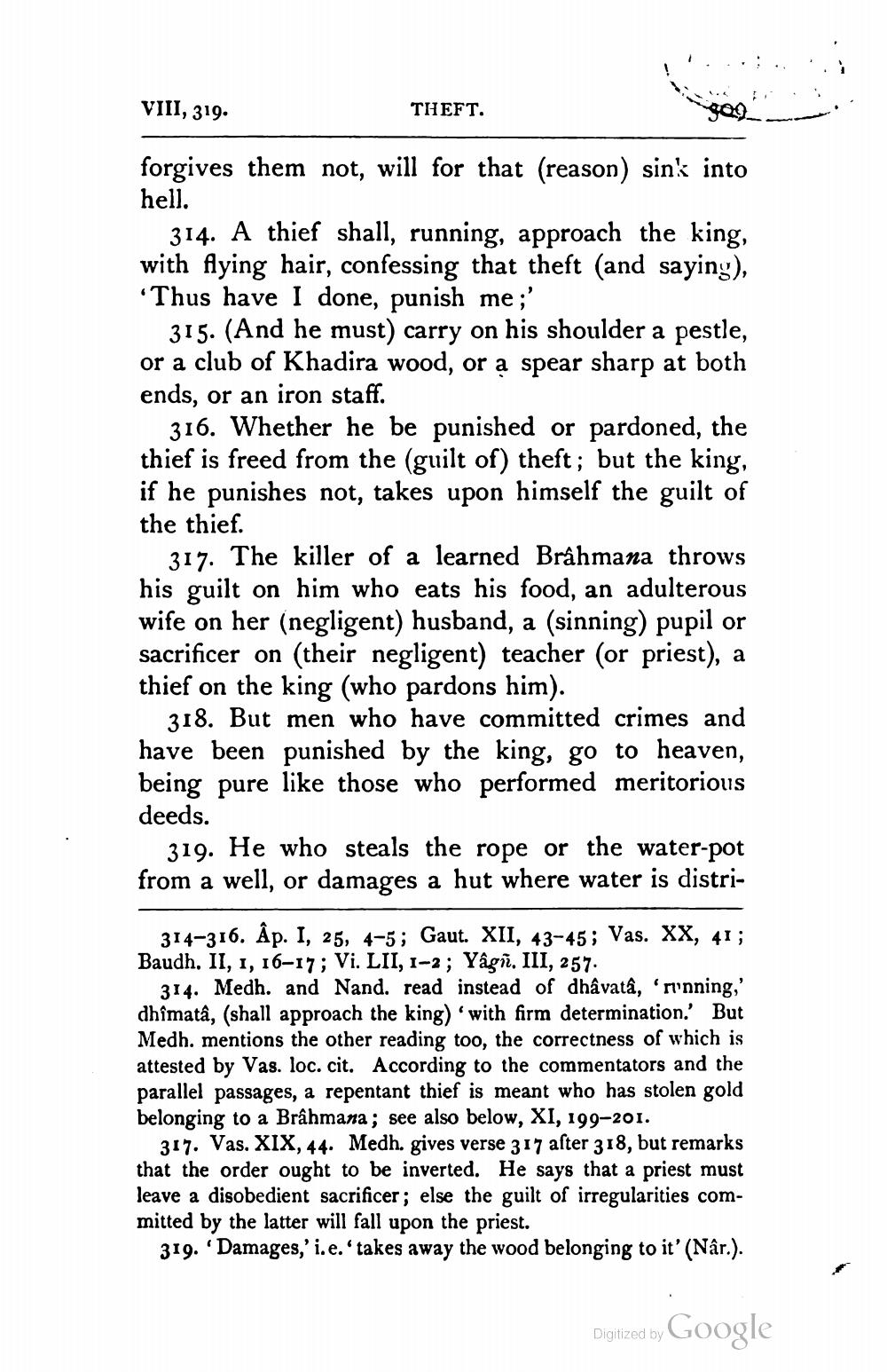________________
VIII, 319.
THEFT.
forgives them not, will for that (reason) sink into hell.
314. A thief shall, running, approach the king, with Aying hair, confessing that theft (and sayiny), *Thus have I done, punish me;'
315. (And he must) carry on his shoulder a pestle, or a club of Khadira wood, or a spear sharp at both ends, or an iron staff.
316. Whether he be punished or pardoned, the thief is freed from the (guilt of) theft; but the king, if he punishes not, takes upon himself the guilt of the thief.
317. The killer of a learned Brâhmana throws his guilt on him who eats his food, an adulterous wife on her (negligent) husband, a (sinning) pupil or sacrificer on (their negligent) teacher (or priest), a thief on the king (who pardons him).
318. But men who have committed crimes and have been punished by the king, go to heaven, being pure like those who performed meritorious deeds.
319. He who steals the rope or the water-pot from a well, or damages a hut where water is distri
314-316. Ap. I, 25, 4-5; Gaut. XII, 43-45; Vas. XX, 41; Baudh. II, 1, 16–17; Vi. LII, 1-2; Yagi. III, 257.
314. Medh. and Nand. read instead of dhâvata, 'rinning,' dhîmatâ, (shall approach the king) with firm determination.' But Medh. mentions the other reading too, the correctness of which is attested by Vas. loc. cit. According to the commentators and the parallel passages, a repentant thief is meant who has stolen gold belonging to a Brâhmana; see also below, XI, 199-201.
317. Vas. XIX, 44. Medh. gives verse 317 aster 318, but remarks that the order ought to be inverted. He says that a priest must leave a disobedient sacrificer; else the guilt of irregularities committed by the latter will fall upon the priest.
319. 'Damages,' i.e.' takes away the wood belonging to it' (Nâr.).
Digitized by Google




